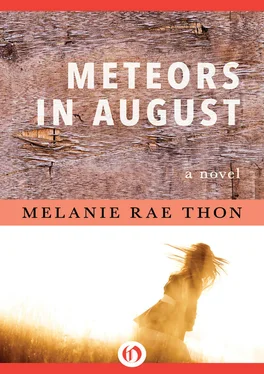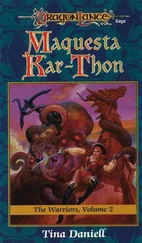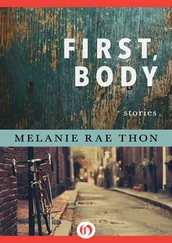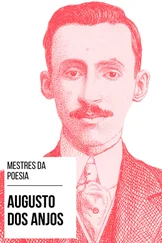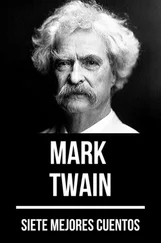Mother did not rise to meet him. She let him reel and stumble. Fool. She watched him. I thought she must hate him for making her so afraid, for letting her think he might be dead when all the time he was drunk and very much alive.
Now he was at the bottom of the steps, looking up at her. He didn’t try to climb onto the porch; he only mouthed her name. “You should be ashamed,” she said.
“I am,” he whispered.
“Drinking yourself dumb.”
But he wasn’t drunk. He swore, no, not a drop, “I couldn’t.” And yet he said, “Who will forgive me?”
She knew him too well to think he lied. Her rage spilled on the steps, useless now, leaving her as weak as he was. She pulled him toward her. It was a long time before he spoke. And it was a long time before she asked.
At last she said, “Tell me”; and he answered, “Lanfear Deets lost his hand. Lanfear Deets cut off his damn hand because I got him promoted.”
“You can’t blame yourself for doing a man a favor.”
“For the wrong reasons.”
“He deserved the raise.”
“I told the sonuvabitch a thousand times if I told him once, ‘Watch what you’re doing.’ But he wasn’t watching. He was gabbing with Vern Foot, clucking like a damn woman. You can’t hear a thing in there; the fool was leaning over so far he practically had his nose stuck in Vern’s ear. Saw caught his sleeve, Jesus, pulled him halfway onto the table.”
“He’s to blame.”
“I knew he was an idiot. But she, the way she looked at him. She’ll never forgive me. She forgave me for twisting his arm to get my twelve dollars out of that worthless weasel, but she won’t ever forgive me for cutting off his hand.”
“You didn’t.”
He stared at his callused palms. “Everything I touch,” he said.
In the morning the sun fell through the blinds of the kitchen window, throwing rails of light on the floor. My father didn’t go to work that day or the next, or the one after that. He chopped firewood for three days straight, brought home four truckloads of logs and split them all, then piled them along the side of the house. He rarely rested, and when he did, he didn’t eat; he just sat on a stump and smoked. Mother and I watched the stack grow. “At least we won’t freeze,” she said.
I was sure people would figure out why my father stayed clear of the mill. He wasn’t the kind to take a sick day. But of course no one pieced it together. No one blamed him as he blamed himself. Lanfear Deets wasn’t the first man to mangle a limb at the Willis mill, and his wounds weren’t the worst. “Lucky to have his arm,” some folks said. “Lucky to have his head,” someone added. And everyone laughed. The only people who weren’t laughing lived in my house.
That was the same week Arlen’s chickens died and she went home. The night the temperature dropped to 20 below, Lester Munter left the door of Arlen’s chicken coop open a crack — an accident, he said. He claimed he flicked off the lamps just by habit. In the calm of morning, Arlen spotted the open door, the wind-drifted snow. She found her chickens this way: rigid, destroyed, blocks of chicken-shaped ice that would be rotten by the time they were thawed enough to bleed. She cleared the snow from a circle in her yard and gathered two armloads of my father’s wood, stacked a triangle on the hard earth, and stuffed the holes with newspaper. Two by two, she carried her chickens out by their legs, tossed them on top of the logs until she had a three-foot pile of frozen fluff.
She spent hours fanning the pale flames in the cold, but when the pyre finally caught, the inferno looked as if it would burn for days. Thick smoke rose and hung above the house, a blue cloud that refused to scatter or drift. The stink of singed feathers and scorched skin filled the neighborhood, squeezed under door-frames, seeped along the sills of closed windows.
By nightfall, when the bonfire flickered low, when her precious chickens were nothing but ash and charred bone, Arlen packed her bags and went home. I was glad when she left, glad there was no one else to hear our secrets or our silences.
GWEN HOLLER could have rescued me during Christmas break. Running through the gully with her might have made me forget about my father. I could have gone to the gully alone, but when I was by myself, the stripped tamaracks and the crunch of frozen snow under my boots only reminded me of what Daddy had done. I blamed him for Lanfear Deets’s hand — not because the poor man had lost it and couldn’t work, but because the saw kept whirring in my brain. I saw Lanfear Deets’s fingers, fat as sausages, guiding the rough boards. He remembered a joke and looked over his shoulder to tell Vern Foot. And they laughed, too hard; Lanfear jerked his hand away just in time. That was a warning, a little scare before the real thing. I imagined the second joke, minutes later, Lanfear glancing sideways, the unstoppable saw lifting his body onto the table, the bewildered look before the pain, the bad joke untold.
By then I knew that Red Elk had saved Lanfear Deets. He’d ripped the bandanna from his neck and tied a tourniquet at Lanfear’s elbow. Blood spurted on Red Elk’s hands and thighs, spit all the way to his eye when he cinched the cloth tight — that’s what my father said. When I closed my eyes, I saw Lanfear Deets’s blood spreading on the floor, a giant poppy slowly opening.
I was almost relieved to go back to school. The first Friday, Mr. Lippman told the class to choose lab partners for our science project: on Monday, each pair of students would have one frog to dissect together. I stared at Gwen, but she leaned across the aisle to tap Jill Silverlake on the arm. They giggled and squeezed each other’s hands as if they’d just agreed to go steady.
The room buzzed and I waited. Finally Mr. Lippman thumped his desk with his fist and told us to raise our hands if we didn’t have a partner. Only two other hands wagged in the air: the five dimpled fingers of Marlene Grosswilder and the dark hand of Claude Champeaux, one of the three Indian brothers who was brave or foolish enough to come to our school. Mr. Lippman assigned Marlene to me and took Claude as his own partner. He didn’t want any hysterical mothers calling him in the middle of the night. He didn’t want some hefty mill worker standing at his door with a rifle, asking where he got the nerve to let a white girl work with an Indian boy.
“It’s a sign,” Marlene said, cornering me by my locker. “The Lord wants us to be friends.”
“Bug off, Marlene.”
She covered her ears. “I don’t hear nasty language.”
“How about this,” I said, grabbing her collar and pulling her toward me until our noses nearly touched, “can you hear me now? Does your God think that after we whack a little frog on the back of the head, stab a needle in his brain and slit his gut, we’ll be pals for life?”
“Stop it. You’re choking me.” I let her go. Marlene shook her finger as she backed away from me. “I’m still praying for you. I’m praying for you, Lizzie Macon.”
I opened my mouth and stuck my fingers inside to show her that the idea of her praying for me made me gag.
“The Lord tells me that you must be suffering in some way.”
I kicked my locker shut. “Yeah, I’m suffering, all right. I’m suffering being forced to talk to a stupid cow like you.”
“I forgive you for what you just said. And the Lord forgives you too.”
Now that she’d swallowed religion, Marlene Grosswilder was impossible to rile. I said, “The Lord has nothing to do with anything that happens between us.” Marlene was the only girl in the eighth grade who was as tall as I was. We stood nose to nose and I peered through her thick glasses thinking how strange her eyes looked, magnified twice their natural size.
Читать дальше
